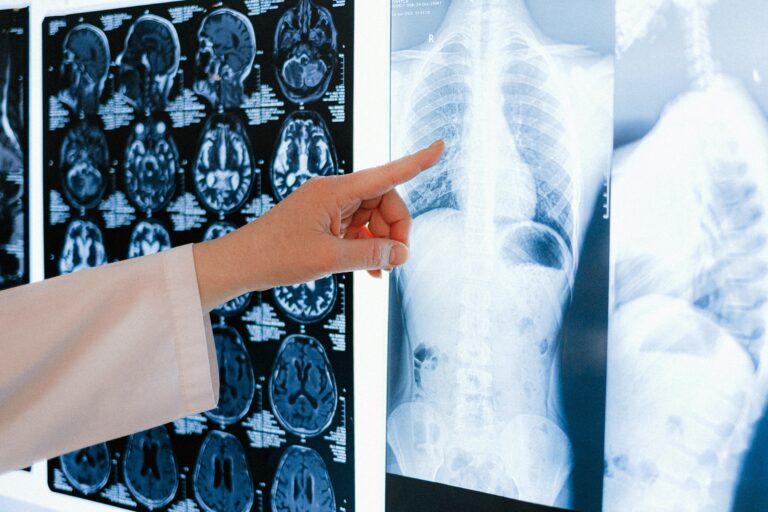The Ultimate Guide to Preparing Your Body for Pregnancy and Successful Breastfeeding

Embarking on the journey of family planning and anticipating the joys of pregnancy and breastfeeding? Look no further! In this guide, we’ll walk you through essential steps to prepare your body for pregnancy and ensure a successful breastfeeding experience.
Why Preparing Your Body for Pregnancy Matters
Ensuring your body is ready for pregnancy is not only vital for your well-being but also for the health of your future baby. This preparation forms the cornerstone for a healthy pregnancy, reducing the risk of complications. By optimizing your health before conception, you enhance your chances of conceiving and nurturing a healthy pregnancy.
Begin with a preconception health checklist, encompassing a visit to your healthcare provider, a review of your medical history and medications, and an assessment of potential risk factors affecting fertility or pregnancy. Discuss any concerns or questions with your healthcare provider to set a solid foundation.
Nutrition and Diet for Optimal Fertility
A balanced, nutritious diet is paramount for preparing your body for pregnancy. Focus on a variety of nutrient-rich foods to ensure you receive all essential vitamins and minerals crucial for reproductive health. Foods rich in folic acid, like leafy greens and legumes, play a key role in preventing neural tube defects.
Beyond a healthy diet, include fertility-boosting foods such as antioxidants (found in berries and dark chocolate) and omega-3 fatty acids (abundant in fatty fish and chia seeds). Limit caffeine and alcohol intake, as excess consumption can negatively impact fertility.
Exercise and Physical Activity for Fertility and Pregnancy
Regular exercise is beneficial for overall health, fertility, and a healthy pregnancy. Moderate-intensity exercises like brisk walking or swimming can regulate hormones, enhance blood flow to reproductive organs, and boost fertility.
Maintaining physical activity during pregnancy is equally important. Consult your healthcare provider before initiating or continuing any exercise routine. Opt for low-impact exercises like prenatal yoga or swimming to improve circulation, alleviate pregnancy discomfort, and prepare your body for labor.
Managing Stress and Mental Health Before Conception
Prioritize stress management and mental health to prepare your body for pregnancy. High-stress levels can disrupt hormonal balance, affecting ovulation and fertility. Engage in activities that bring joy and peace, and consider seeking support from a therapist or counselor if you’re dealing with stress or mental health issues.
Practice mindfulness, meditation, and deep breathing exercises to reduce anxiety and promote overall well-being.
Understanding the Menstrual Cycle and Ovulation
Crucial to conception is understanding your menstrual cycle and ovulation. Track basal body temperature, monitor cervical mucus changes, or use ovulation predictor kits to identify your fertile window—the time when conception is most likely.
Common Fertility Issues and Seeking Medical Help
Infertility is a common concern, and knowing when to seek medical help is crucial. If conception hasn’t occurred after a year (or six months if you’re over 35), consult a fertility specialist. They can assess fertility, offer guidance on potential treatments, and address underlying causes.
Common causes of infertility include hormonal imbalances, ovulation disorders, fallopian tube blockages, and sperm abnormalities. Early intervention increases the likelihood of successful conception.
Preparing for Successful Breastfeeding
Breastfeeding is a profound bonding experience. Achieving success involves both physical and emotional readiness. Educate yourself on breastfeeding benefits, techniques, and common challenges to overcome potential obstacles.
Create a supportive environment by informing your partner and family about the importance of breastfeeding. Attend breastfeeding classes or support groups to learn from experienced mothers and lactation consultants.
Breastfeeding Benefits for Both Mother and Baby
Breastfeeding offers a myriad of benefits. For infants, breast milk provides essential nutrients and antibodies, boosting their immune system and safeguarding against infections. It supports healthy growth, reducing the risk of chronic diseases later in life.
For mothers, breastfeeding releases hormones that foster bonding and emotional well-being. It aids postpartum recovery by promoting uterine contraction and reducing the risk of excessive bleeding. Breastfeeding is linked to a reduced risk of postpartum depression and certain cancers.
Tips for Establishing a Successful Breastfeeding Journey
- Initiate breastfeeding soon after birth to leverage your baby’s natural feeding instincts.
- Ensure an effective breastfeeding latch and positioning to prevent nipple pain.
- Nurse frequently to stimulate milk production and establish a good milk supply.
- Seek help from a lactation consultant or support group for guidance.
- Take care of yourself with a nutritious diet, hydration, and sufficient rest.
Remember, every breastfeeding journey is unique. Trust your instincts and seek help when needed. With time and practice, you and your baby will find a rhythm that suits both of you.
Follow our comprehensive guide to confidently prepare your body for pregnancy and embark on a successful breastfeeding journey. Unlock the secrets to a joyful and healthy motherhood experience together.
In conclusion, the journey of preparing your body for pregnancy and successful breastfeeding requires knowledge, preparation, and support. Optimize your nutrition, exercise, and mental health, understand your menstrual cycle, and seek medical help when needed. Educate yourself about breastfeeding benefits and establish a supportive environment for a fulfilling motherhood experience. Each step you take is a stride toward a joyful and healthy journey into motherhood.





